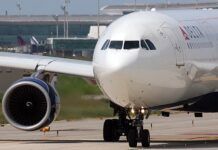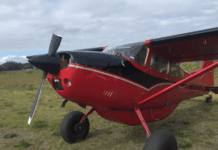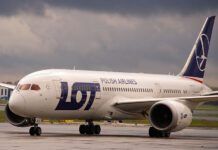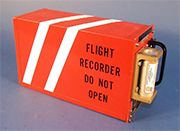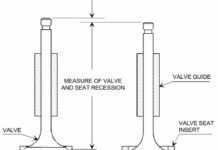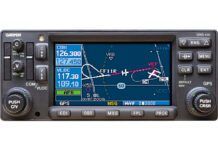Pilots complain—and have always complained—about ramp and parking fees, those annoying gotchas that so bespoil what would otherwise be a magic moment between man and machine. That’s at the core of the current misalignment between AOPA and NATA and the former’s general complaint against three Signature-owned FBOs.
But as far as pilots go, this is a complaint by degree. If you sit the complainant down and ask if he or she wants a well-equipped FBO, friendly line people, clean bathrooms, free coffee and a crew car, you find … acquiescence. That’s because pilots generally realize that running businesses entails costs and they can reasonably be expected to pay a fair share of those costs, plus a margin. Sounds like user fees, no? They are.
So it devolves to a discussion of what’s a fair fee, if one is charged at all. In my view, in the absolute, I’ll pay $20 to $25 for a single-engine airplane without blinking and maybe up to $40 for a twin. But my—and probably your—idea of what’s fair isn’t the same as what’s realistic unless we can see the FBO’s P&L. You have probably noticed that FBOs come and go like the weather. If they were reliably profitable entities, why would they change hands so often?
At big-city FBOs, overhead expenses paid to the airport owner may be higher and have to be recovered through fees and fuel sales margin if the FBO is to keep the lights on. Hence, higher fees and fuel prices. But maybe those big-city operations are actually making a killing because we only think they’re more expensive to operate. Show me the P&L and I could have a more informed opinion.
AOPA’s complaint is against three Signature operations at Key West, Florida; Asheville, North Carolina; and Waukegan, Illinois, where Signature is an effective monopoly on the field. Seven aircraft owners joined the complaint. The basis of the complaint is FAR 13, which allows aggrieved parties to complain to the FAA that high fees discriminate against some users at airports where federal AIP funds are spent for improvements.
Just for the record, at Key West, Signature charges $6.71 for 100LL, at Waukegan $6.60 ($5.90 self-serve) and at Asheville $6.97. According to airnav.com, the current national average for 100LL is $4.74. Collateral fees seem to be all over the map. At Key West, according to the comment section on AirNav, sometimes the fee is waived with fuel purchase, sometimes not. Said one commenter: “Called two days ago to check fees, was told $20 facility fee and $20/night parking. Then I read the AirNav comments and thought can this be the same place? Called back yesterday to recheck and was told $140 facility fee and $140/ night parking. With a planned four-night stay, we obviously ended up landing KMTH instead. It’s only an hour drive. This is the most outrageously expensive airport I’ve ever checked fees at. No reason to go here.”But that comment occurred before Signature took over last year.
I reviewed all the comments for Key West and found 28 favorable, 20 unfavorable, but sentiment was split evenly since Signature took over early last year. In any case, when I called to check fees on Sunday, Signature said the single-engine handling fee is $25, waived with a fuel purchase of 7 gallons. Overnight parking is $23.65, but seems to vary by model. These fees aren’t published, so you have to call to get them. Those fees are on the high side for me, but not outrageous and not, in my view, “egregious” as AOPA insists. Up the road in Marathon, fuel is $5.98, the $15 ramp fee is waived with fuel purchase and tiedown is $15 a night. It’s about an hour drive down to Key West from Marathon.
If you do even the minimal math and you bought 50 gallons of fuel, by flying into Marathon, you’d save $35 on gas and $8 a night on tiedown, so call it $60 for a three-day stay. Lunch for two on Duval Street. Throw in the rental car and you’re spending more than just landing in Key West in the first place. That’s the size of the difference we’re talking about here. If it’s the principle of the thing, I get it. Be my guest. Not sure I would bother, even as cheap as I am. I’m no fan of Signature either and routinely avoided this franchise because of high fees and fuel prices. But that’s not the same as wanting government intervention to lower them. I’m not going to plug all this into a spreadsheet, but I will stipulate the cost delta for a twin or a turbine might be more. Comments about Asheville or Waukegan were similarly negative and similarly mixed. AOPA says it has gotten many complaints about these airports.
But does this rise to the level of exclusionary pricing? Are pilots discriminated against to the extent they can’t come to Key West for lack of competitive pricing? Is a Part 13 complaint justified? I don’t see a convincing argument here. There are other exclusive places where it’s just more expensive to fly. Take Teterboro, for instance. (Yeah, take it.) Avgas is between $7.44 and $8.10 and at Meridian, the top-rated FBO, the ramp fee for a single is $55, waived with a fuel purchase. (They’ve got the cheapest gas, at $7.44) Yet … the AirNav comments are almost uniformly positive for two reasons: People probably expect to pay more because of the location and the service gets raves. Said one customer: “As per many previous reviews. I showed up in a ratty old C-172 and was treated as well as everyone else. They arranged a car service to make a lunch in Manhattan, had the best fuel prices, and were thoroughly professional.”
You could argue that competition on the field hones their performance, but I’d also argue that it’s more than that. Businesses with a customer-centric focus usually benefit from management that’s customer focused. And that gets me back to Signature and perhaps the real value of AOPA’s complaint. If I were a Signature manager and saw that many complaints against my business, I’d consider it a five-alarm fire and I’d figure out how to fix it. FBOs like Meridian clearly do it in a high-cost market and Signature ought to as well.
As for the FAA complaint, what’s the agency going to do, wade in and set fuel and ramp fee prices? Should the cities at these three airports do that? They do have a say. Clearly, the airport hosts are allowed and even required by the FAA to produce revenue through hangar rentals and other fees. At my home airport, the city was actually dinged for not charging enough for leased ground to private businesses. Can they similarly determine a business is charging too much? I suppose. I just don’t think Signature’s fees cross that threshold.
Perhaps what the FAA should do is determine that the fees are consistent. Judging from the AirNav comments, they are not. Some pilots were clearly charged more than others. Increasingly, airports are levying “security” and “infrastructure” fees that are tacked on to ramp and parking fees. Key West has one of these, at $5. Other airports not named in the complaint are also adding on these fees. Again, these are user fees or taxes by another name. Second, why can’t these public-access airports have a parking area for which there is no charge and no services? Walk yourself to the fence exit and carry your own bags. That would address the denial of access for pilots who just don’t want to pay the FBO’s bathroom cleaning bill. High fuel prices aren’t denial of access; you can get gas elsewhere.


















